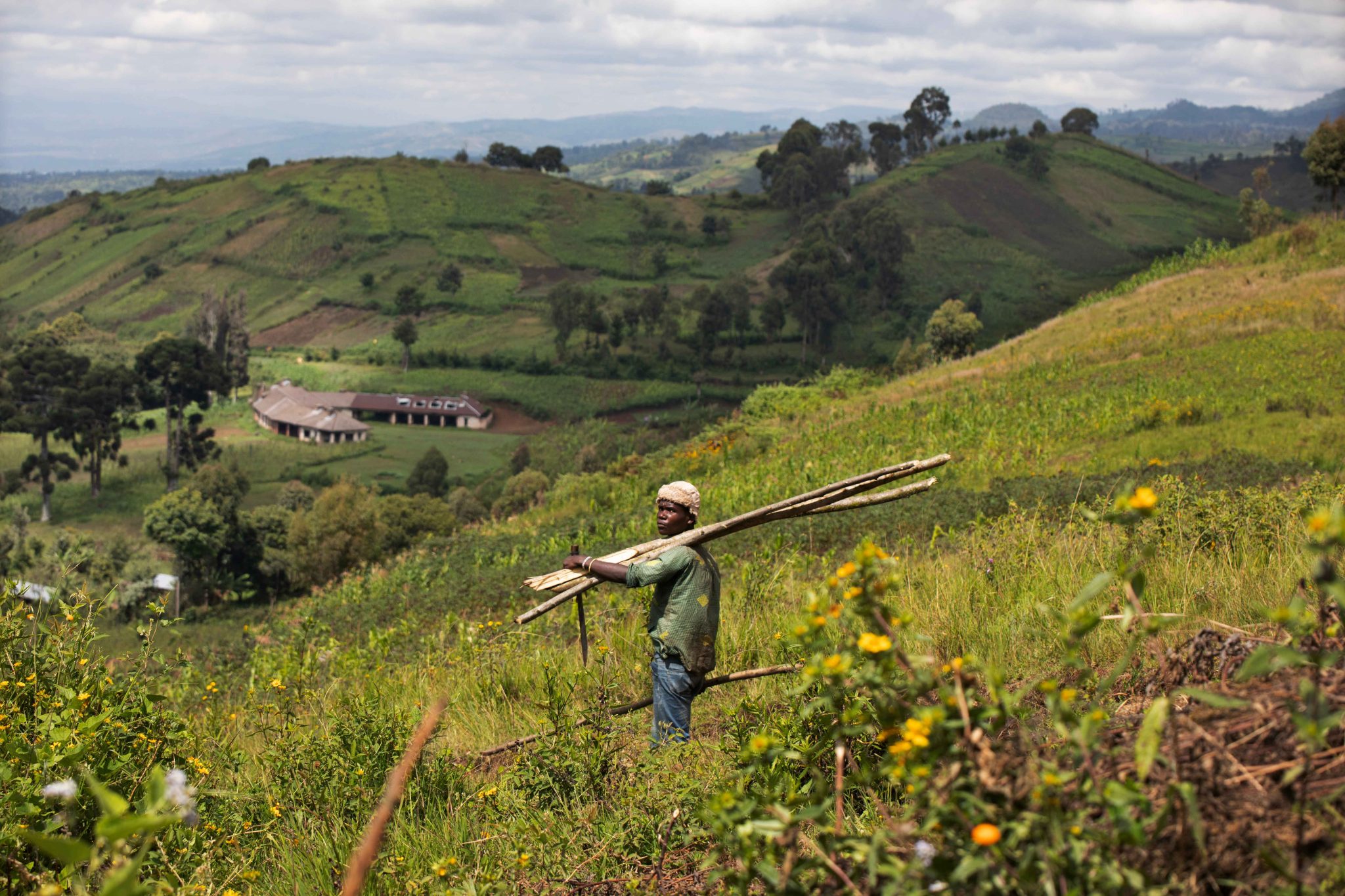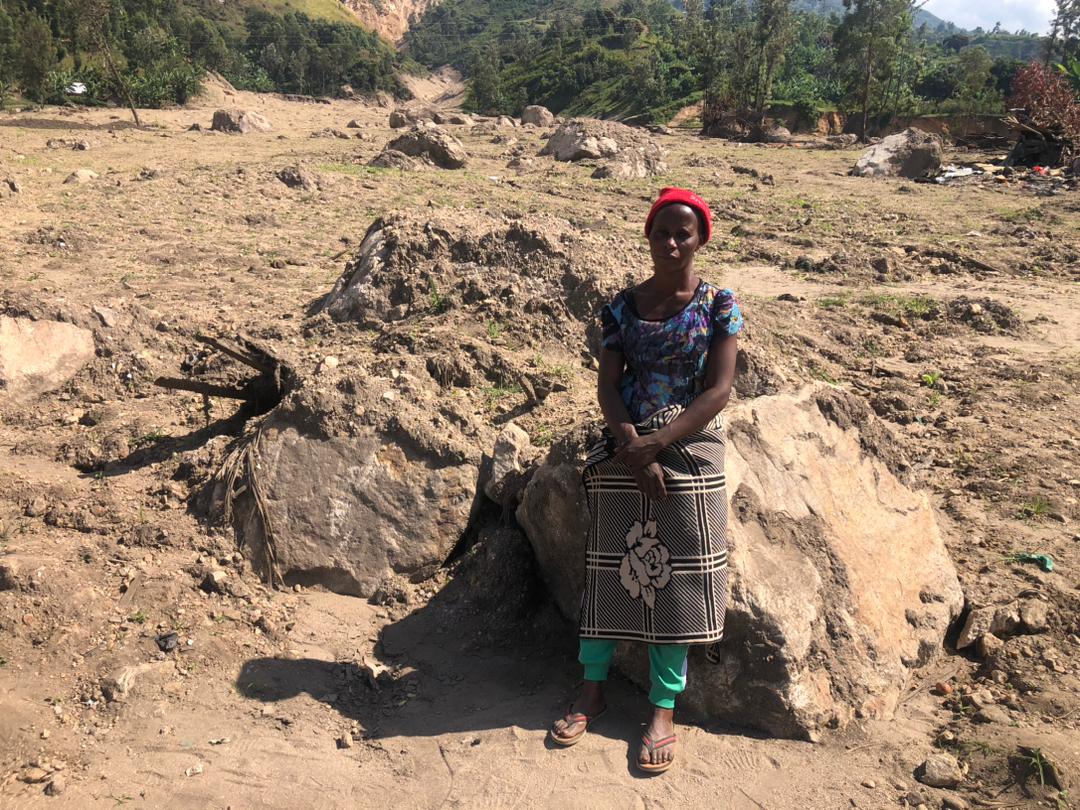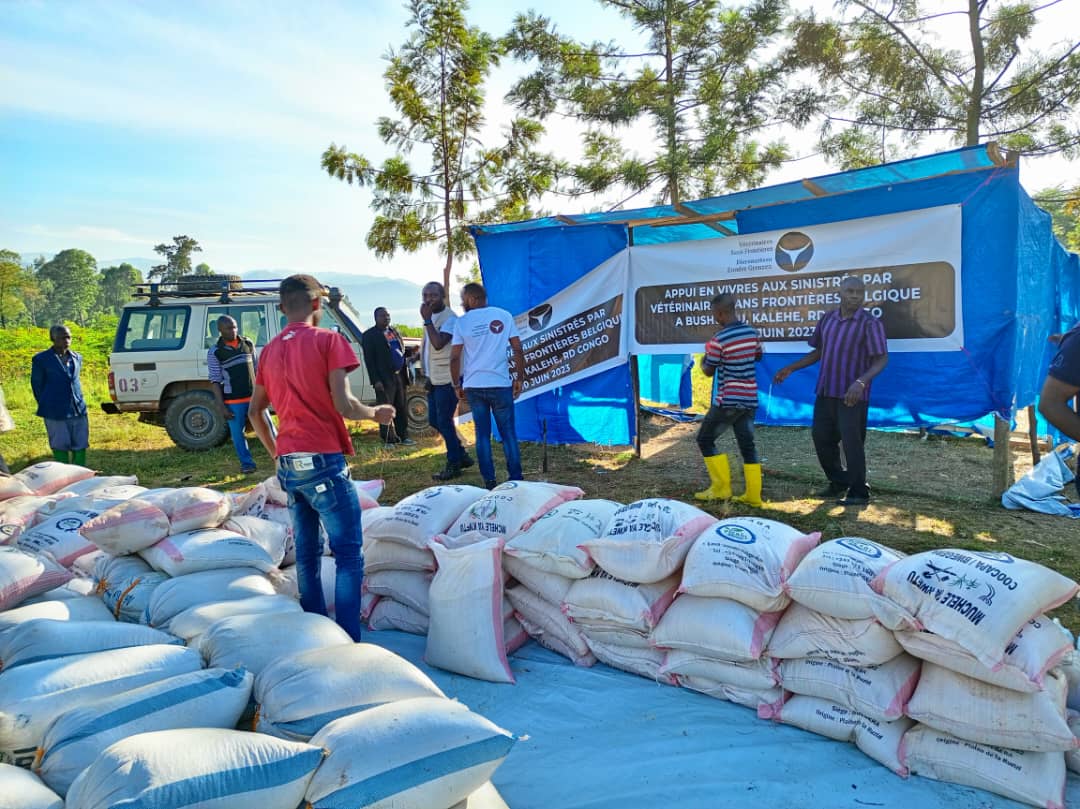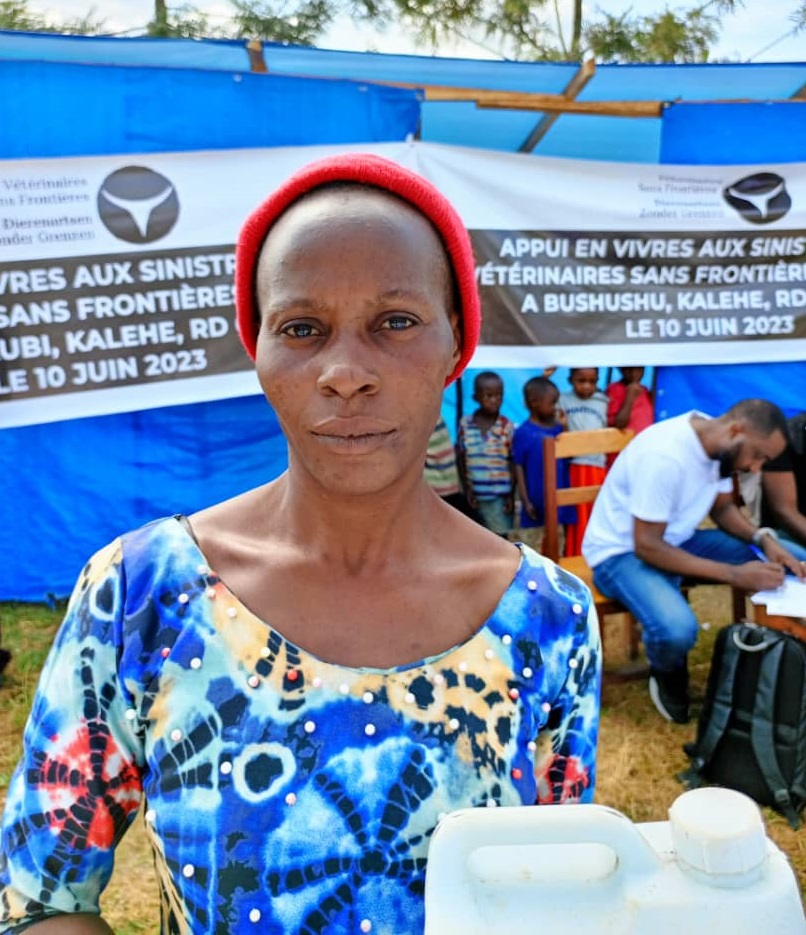It seemed to be a day like any other in Bushushu and Nyamukubi, two small villages in Kalehe Territory in South Kivu. Everyone was just going about their business, with no inkling of the catastrophe that was headed their way on 4 May this year.
It was late afternoon when everything changed. “It started raining at about 5 o’clock in the afternoon. Suddenly the sky turned black. We heard our neighbours shouting, and without knowing where the danger was coming from, we ran”, explains Bodari Tailleur, a 68-year-old livestock keeper originally from North Kivu who lives in Bushushu village.
Early in the morning of Friday 5 May, the full extent of the disaster became clear: more than 400 human lives and thousands of livestock had been lost. Around 3000 homes had been destroyed by the water, and more than 6000 people were left homeless. Bodari is among the most severely affected residents: “My wife was knocked over by a big rock, and both my children and one of my grandsons were swept away by the water. We were unable to save them. My home and all my belongings were lost.”
Conflicts and deforestation: a double disaster

To make ends meet, the population of Kalehe cut wood and sell it in the form of charcoal. They are unwilling contributors to the deforestation and soil erosion that cause the flooding. © Thomas Cytrynowicz
Kalehe Territory, located in South Kivu, serves as the border with North Kivu. For more than thirty years, various armed groups have imposed a climate of violence. The result has been chronic instability and regular displacements of thousands of people. According to the United Nations Office for the Coordination of Humanitarian Affairs (OCHA), the region has no fewer than 107,000 internally displaced people, many of whom come from North Kivu. Food insecurity is ubiquitous in the area, where cholera is also endemic. Almost 95% of the population of Kalehe live on less than one dollar a day.
The residents’ vulnerability is the reason they exploit the natural resources around them to meet their needs. Starting with the forest. Since charcoal is the main source of energy in the region, the population have become accustomed to cutting down trees to burn and sell them. But deforestation of the high plateaus and the resulting erosion of the soil come at a high price. When it rains heavily, the sparse forest cover is not enough to hold back the rocks and soil that the rainwater sweeps down from the hills. That is what happened in Kalehe at the beginning of May.
An unprecedented flood
“This is the first time a disaster like this has hit Bushushu since I was born”, recalls 32-year-old Rebecca Mugoli Kagenyi. “Usually, the people who build their homes on the banks of Lake Kivu are the ones who get swept away by floods, not the ones who live on the hillsides.” Nevertheless, that is where the young woman and her eight children were caught by the rising waters.

Rebecca Mugoli Kagenyi, one of the victims of the flood on 4 May 2023, standing where her home used to be in Bushushu (South Kivu). This mother lost all her livestock in the catastrophe.
“I was at home with all my children, and suddenly it started raining. After 40 minutes, the water started running into people’s houses. My children managed to flee, but the water swept me to the edge of the lake. Miraculously, I managed to grab hold of a banana tree. Alerted by my cries, a neighbour in his canoe came to pull me out of the mud. He took me to hospital because I had injuries to my head, arms and legs.”
Musa Muhozi, aged 19, also owes his life to a tree: “I was walking home from the market with my mother and brothers when, suddenly, the waters surrounded us. I clung to an avocado tree and managed to climb it. All the trees were swept into the lake, but mine held on until the end. That’s what saved my life”, explains the young man, who lost his mother in the catastrophe.
Food aid to meet the most urgent needs

Nearly 60 families affected by the floods received a food kit containing rice, beans, oil and salt.
Along with thousands of other people, Bodari, Musa and Rebecca were left homeless overnight by the disaster. Having lost almost all of their livestock, they do not know how they are going to meet their families’ needs over the coming months.
To respond to the immediate needs of the most vulnerable among the victims, we organised an emergency fundraising campaign. Almost 700 donors answered our call. Thanks to the funds we collected, our team in South Kivu managed to organise a distribution of provisions one month after the catastrophe. Sixty families benefited, including the families of Bodari, Rebecca and Musa. Each one received 50 kg of rice, 25 kg of beans, 5 litres of oil and 1 kg of salt. This kit was designed to enable them to meet their families’ nutritional needs for one month.

